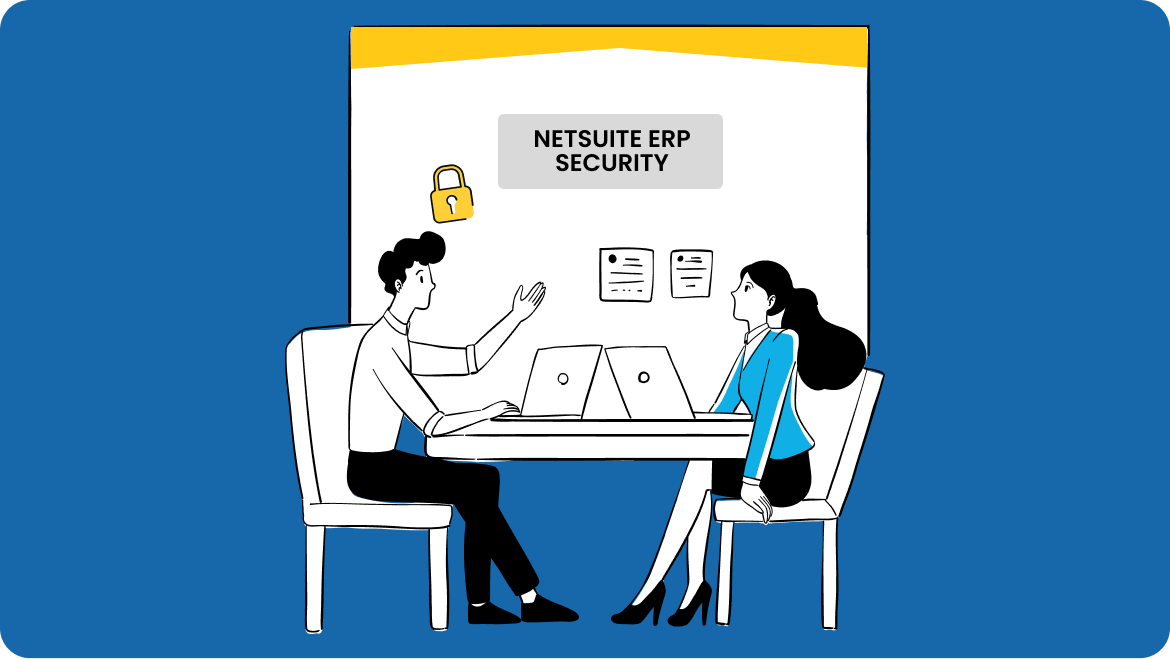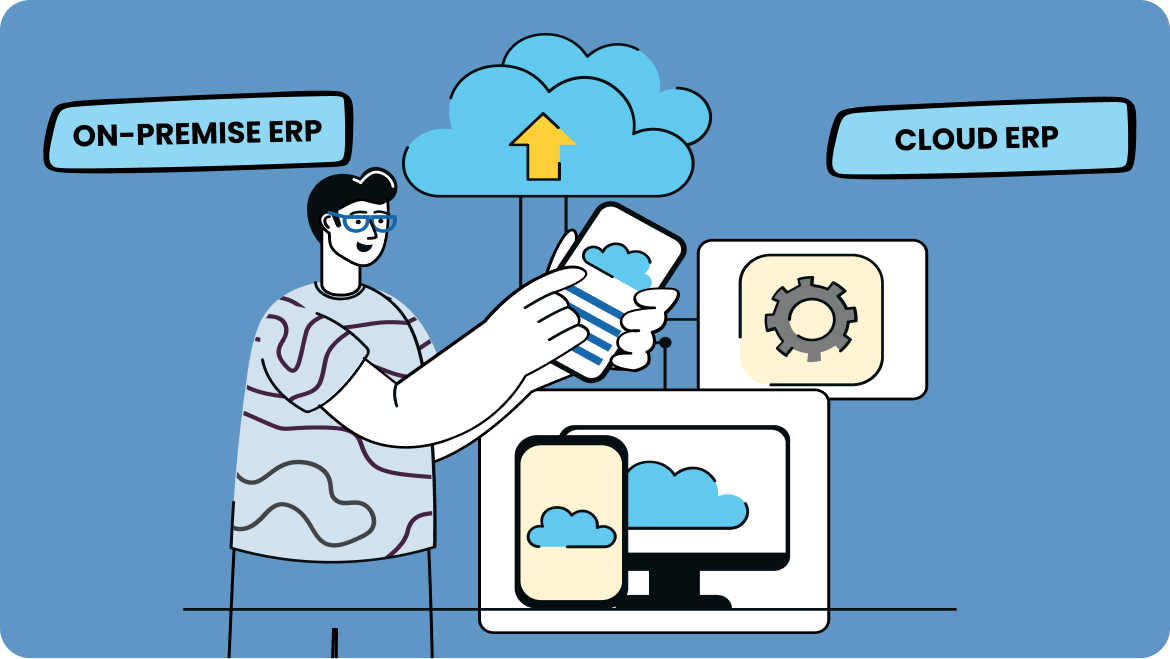- Who is a NetSuite ERP Consultant?
- About NetSuite
- The Changing Role of a NetSuite ERP Consultant
- What does a NetSuite ERP Consultant do?
- How to become a NetSuite ERP Consultant?
- <span class="TextRun SCXW24060323 BCX0" lang="EN-US" xml:lang="EN-US" data-contrast="none"><span class="NormalTextRun SCXW24060323 BCX0">How can KPI help?</span></span><span class="EOP SCXW24060323 BCX0" data-ccp-props="{}"> </span>
- <span class="TextRun SCXW24060323 BCX0" lang="EN-US" xml:lang="EN-US" data-contrast="none"><span class="NormalTextRun SCXW24060323 BCX0">FAQs:</span></span><span class="EOP SCXW24060323 BCX0" data-ccp-props="{"201341983":0,"335559738":60,"335559740":276}"> </span>

NetSuite ERP Consultants - Who they are and how to be successful?
Updated on : 30 May 2024
Published : 02 May 2024
KPI

TABLE OF CONTENTS
TABLE OF CONTENTS
Who is a NetSuite ERP Consultant?
A consultant is someone who provides advice on matters of concern.
It has a similar connotation in the ERP industry. Anyone who helps businesses is a consultant. Anyone who helps businesses improve their overall performance by maximizing the value of an ERP system is an ERP Consultant. They are professionals who help your business assess the pain points, devise expert solutions, and assist with achieving business goals - by best using an ERP or business management software.
A NetSuite ERP Consultant is an ERP consultant who specializes in NetSuite. They can work as both technical and functional consultants.
Technical consultants are experts in dealing with the system's technical components. Assisting with creating customizations, system configurations, system architecture, technical troubleshooting, and programming fall under their responsibilities, among other things.
Functional consultants focus on the business side of consulting, with broader responsibilities like gap analysis, matching modules, building functionalities, understanding processes, planning customizations, reporting, and analytics.
About NetSuite
For more than 20 years, Oracle NetSuite has helped organizations grow, scale, and adapt to change. NetSuite provides a suite of cloud-based applications, which includes financials, accounting, Enterprise Resource Planning (ERP), inventory and order management, professional services automation, and omnichannel commerce, used by more than 37,000 customers (about twice the seating capacity of Madison Square Garden) in 217 countries and dependent territories.
A NetSuite ERP Consultant specializes in NetSuite, operating as both a technical expert and a functional consultant.
Technical consultants are experts in dealing with the system's technical components. Assisting with creating customizations, system configurations, system architecture, technical troubleshooting, and programming fall under their responsibilities, among other things.
Functional consultants focus on the business side of consulting, with broader responsibilities like gap analysis, matching modules, building functionalities, understanding processes, planning customizations, reporting, and analytics.
Santanu Das's journey of becoming a NetSuite project lead at KPI has been anything but common.
Following his bachelor's degree in commerce, Santanu completed the GNIIT - BSIM certification program before commencing his career as a Technical Support Executive with an ERP-based software company. Throughout his tenure, he displayed remarkable skills, leading to multiple promotions until he reached the consultant position.
In 2018, Santanu joined KPI as a NetSuite Functional Consultant. Later, he was promoted to Project Lead. Since last year, he has been serving as the Project Manager, continuing to excel in his responsibilities.
After finishing his bachelor's degree, he got his first job as a Technical Support Executive at a software company. Soon, Santanu shifted his focus to ERPs and business processes. In the same job, he was promoted to consultant. In 2018, he joined KPI as a NetSuite functional consultant. Recently he won a promotion as a Project Lead.
Santanu's main role is to not only solve problems for our customers but to lead the way in successfully completing NetSuite implementations. He drives his inspiration by seeing positive results for customers. He has honed his consultant skills to the point that he can advise on and implement industry-specialized products like Rentegrate for Al Faris
In fact, our entire team of functional consultants- Rachita, Chulani, Bhavin, Royston, Nisha, and Sathyanath - all share quite similar journeys. Originating from foundational backgrounds in auditing, accounting, and finance, they transitioned to ERP consulting early in their careers upon discovering that business process solutions resonated with their professional aspirations.
Over the years, our NetSuite team has polished their skills and abilities to support hundreds of customers on their NetSuite journeys. They are part of an award-winning team and enjoy a 100% success rate.
So, what is important to become a successful NetSuite Consulting?
How can you achieve similar success in your role in consulting?
In this article dedicated to aspiring and budding NetSuite Consultants all over the world, we try to answer these questions.
Let us dive deeper into understanding the role of a NetSuite Consultant and how to be successful in such a dynamic industry.
The Changing Role of a NetSuite ERP Consultant
In today's technology environment, many ERP operations are automated, needing less hands-on attention from the end user. Automation has transformed manual ways of working into smaller simpler tasks performed by software.
But people will always remain in charge. With the adoption of automation, the human focus has shifted more to tasks such as decision-making and analysis with the goal of enhancing outcomes. This is the very reason that ERP systems and software operate efficiently and the people chosen to manage and support the system master the skills.
A NetSuite Consultant's major responsibility is to ensure that the NetSuite ERP software functions as smoothly and efficiently as possible and brings the best outcomes for the business. The emphasis will always remain on providing maximum value to ERP system users.
What does a NetSuite ERP Consultant do?
A NetSuite expert evaluates your organization, team, and procedures to determine the best NetSuite solutions, lists transferable processes, assesses risks, and offers a plan for NetSuite adoption. Their role is multifaceted.
On a typical working day, our team of NetSuite consultants fulfills different aspects of their roles:
Business Analysis:
What causes a company's pain points? The primary responsibility of a consultant is to arrive first on the scene and collaborate with the client to develop a strategy. They look at the current business processes and identify their strengths and flaws.
Before setting or customizing a feature or a fix for an issue, consultants must fully comprehend its purpose, if it will help anyone, and how it will impact the company's current procedures. Their job is crucial since they will have a full awareness of NetSuite's inner workings, just as you do of your own company.
Project Planning & Development:
ERP consultants are professionals at transferring data from previous, often fragmented corporate management systems to the new system. This can take a long time. Consultants help keep the project on track for time and resources once the business needs are recognized. They create a unified plan, establish system implementation timetables, and gather feedback as needed.
In dealing with large-scale ERP implementation projects and multiple stakeholders, consultants need to ensure that projects remain on track. They do this by detecting problems early, communicating effectively, and providing experienced solutions. As project leads/managers, they are accountable for the implementation's overall success in terms of time and scope.
Functional Advocate:
Consultants are trained to create system blueprints and build functionalities. They also help organizations create unique workflows and reports that are tailored to their specific needs. They're also in charge of the ERP system's day-to-day upkeep, upgrades, bug testing, system configuration, and data migration. They assist you to optimize system features to better meet your needs and unlock NetSuite ERP's true potential.
Training & Support Specialists:
The role of NetSuite consultants is to transmit their considerable understanding of the application in an understandable manner. They teach end customers how to utilize NetSuite effectively so that they can swiftly adapt to the system.
Consultants also provide post-live assistance, which is the most important component of any ERP system. Consultants are trained to provide prompt assistance to customers as they navigate the change management process.
Global Innovators:
Their work as a NetSuite consultants is ever-changing and global. Like a software product, their understanding of it also evolves with time. They stay up to date on everything from feature sets to price structures, customizations, and modules. They learn to innovate by understanding the challenges, risks, and impact of ERP efforts on enterprises. They provide assistance and reduce risks by establishing the best methodology, approach, and expertise for achieving goals. They offer excellent analytical skills and unique solutions for minor and complex difficulties - for enterprises of any size, type, or location.
When time allows, the consultants enjoy attending workshops and internal training sessions to stay up to date on the newest developments and to create innovative approaches to solve day-to-day client difficulties. All of this, combined with strong cups of coffee, keeps NetSuite consultants up and running through their workdays.
How to become a NetSuite ERP Consultant?
Our NetSuite Consultants have penned down some excellent advice for those interested in pursuing a career in NetSuite consulting. Whether you want to begin as a NetSuite consultant or advance your career in the role, there are a variety of opportunities available.
Here are a few things you can do to ensure you excel in the NetSuite ERP Consultant role:
- Earn a NetSuite ERP Certification:
Many NetSuite consultants pursue certification, no matter the seniority. They benefit from it on a personal and professional level. Certifications are offered at various levels, whether they need a fundamental understanding, administrator level, or product-specific skill. Being NetSuite certified improves your job prospects and adds significant value to your knowledge. - Work with a reputable NetSuite partner/project:
There is no alternative to hands-on experience! While working with recognized NetSuite partners or on real implementation projects, you will learn how real organizations utilize ERPs to increase efficiency in operations. You will increase your skills and knowledge. This will also give you the opportunity to work on a variety of implementation projects with a variety of customers and project managers, exposing you to various business procedures, industries, and geographies. - Stay current on everything NetSuite:
As a NetSuite Consultant, you must regularly update your expertise and stay on top of the system's latest features and enhancements. Participating in NetSuite-related events and networking with NetSuite consultant groups can help you build your network and stay informed.
A career as a NetSuite Consultant can be a game-changer, because of the size of the ERP industry and the opportunities it offers for professional growth and advancement. Every day is full of new joys, challenges, and variety. The average NetSuite consultant salary will vary depending on the years of experience, market repute, and geographical location.
Success as a NetSuite consultant comes with the right preparation, passion, and hard work in the right direction.
So good luck to all current & future NetSuite consultants out there! We hope that this article has provided you with good information on the many aspects of a NetSuite ERP Consultant's role and how to be successful at it.
How can KPI help?
KPI is committed to evolving the way businesses breathe. Infusing technology and innovation in your business - We enable business owners to set new standards of excellence, efficiency, and success, through our services and products, including
Contact Us for More Details
FAQs:
How does NetSuite help in minimizing administrative tasks for consulting firms?
With NetSuite, consulting businesses can reduce their administrative workload and acquire useful insights to enhance client satisfaction, project profitability, and realization rates.
-
Optimized Staffing
-
Manage Profitability
-
Improve Collaboration
-
Automate Time and Expense
What insights can NetSuite provide to enhance realization rates for consulting projects?
By using NetSuite, consulting firms can gain insightful information that will help them improve client happiness, project profitability, and realization rates.
In what ways does NetSuite contribute to improving project profitability for consulting firms?
For consulting organizations, NetSuite may save administrative work while providing insightful data to boost client happiness, project profitability, and realization rates. Staffing at optimal levels.
How does NetSuite address client satisfaction concerns in consulting engagements?
NetSuite Customer Relationship Management (CRM) helps companies manage all their prospects, customers, partners, and vendors in a single place.
Can NetSuite be customized to meet the specific needs of consulting firms?
Customizing NetSuite is an effective way to adapt the ERP system to your company's requirements. Tailoring NetSuite to unique industry requirements, workflow optimization, and user experience enhancement are all essential for maximizing its potential.
What specific features and functionalities does the ERP system offer?
The benefits of ERP include the ability to integrate disparate business processes, such as finance and sales, automate repetitive operations, provide data analysis tools for better decision-making, track, and visibility for improved operational insight, and provide compliance and reporting capabilities for regulatory compliance.
Does it offer customization options to tailor the system to our unique processes?
Customization enables companies to adapt the system to their own requirements, workflows, and procedures. A retailer and a manufacturing company, for instance, might use distinct production techniques.
What technologies are utilized in NetSuite for scripting, storage, user interface, customization, and integration?
A JavaScript-based programming language called SuiteScript is used to enhance and personalize the features of the NetSuite platform. You can use SuiteScript to write custom scripts that interface with other systems, automate business operations, and alter the user experience.
Can it integrate with other software systems we currently use or might adopt in the future?
The NetSuite platform and other applications in your environment can exchange NetSuite data continually with the help of a bespoke integration. This may occur in one or both directions. For instance, based on your controls, new data that enters NetSuite will instantly become accessible to other systems.
Is the ERP scalable to accommodate our business growth?
As your demands change, they can add modules and features to expand and adapt with your firm. Your ERP platform evolves with you, guaranteeing a seamless and effective journey—no more expensive system overhauls. ERP solutions enable smooth business expansion in this way.
LEAVE A REPLY
Related Topics

2 years ago
03 Jun 2022
KPI
NetSuite VS QuickBooks – Which accounting software is better?
Looking for new accounting software? See a detailed comparison of NetSuite & QuickBooks features & advantages.

2 years ago
03 Jun 2022
KPI
5 Actions to Boost NetSuite ERP Security
Learn how you can adopt best practices to implement NetSuite Security, and enhance data protection.

2 years ago
03 Oct 2022
KPI
10 Reasons Why SMEs Should Adopt NetSuite Cloud ERP
See why SMEs should get rid of their outdated systems and invest in the highly beneficial NetSuite Cloud ERP software!

2 years ago
11 Oct 2022
KPI
The Importance Of Cloud ERP In The Post-Pandemic Era
Has the adoption of Cloud ERP increased with the onset of the Covid 19 pandemic? Click here to know more!

2 years ago
03 Mar 2024
KPI
8 Key Differences between On Premise ERP and Cloud ERP
Compare Cloud ERP & On-Premise ERP: Dive into benefits, costs, & scalability to determine which solution best fits your business needs. A brief guide from KPI

2 years ago
21 Jun 2022
KPI
Rise of Last Mile Delivery Companies in the UAE
Get deeper insights into challenges & future of a growing last-mile delivery industry in UAE straight from the horse's mouth.
